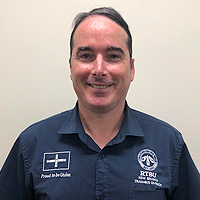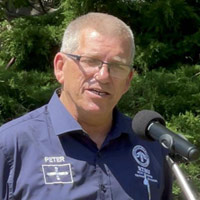Our History
History Of The A.T. & M.O.E.A.
From the SOUVENIR EDITION of the old TRAMWAY RECORDby RON PEARSALL (Last) Federal Secretary
In 1913 the Union was registered in Melbourne, Victoria, as The Australian Tramway Union.
In 1934 the registration was changed to Australian Tramway & Motor Omnibus Employees Association when we obtained coverage for bus drivers.
Our Union has been in the forefront with many struggles.
The 40 hour week; Equal pay – in 1942 we were the first union to be successful in having women employed on equal pay resulting in equal pay slowly being introduced throughout the workforce – some industries took 20 years or more to have this introduced.
We have been a very militant union, involved in many disputes.
In the 50’s the One Man tram dispute in Melbourne which resulted in the Union being deregistered federally for 2 years with the employers, T.W.U., A.T.O.F. (now amalgamated as A.S.U.) opposing our re-registration as a union.
We led the way against the Penal Clauses of the Federal Act with Victorian Secretary Clarrie O’Shea being goaled in 1969 for refusing to pay fines imposed under the Federal Act. This resulted in the Sheriff being sent to all union offices nationally to seize the funds and property of the Union. A national stoppage of the Trade Union Movement followed which resulted in the removal of the Penal Clauses and the release of Clarrie O’Shea from goal.
In 1972 there was the Atlantian dispute in N.S.W where the Commission ordered membership to drive double Decker buses without the assistance of conductors. This dispute led to a 6-week stoppage and shortly afterwards management sold all the Atleantine buses.
In 1990 there was the MET SCRATCH-TICKET dispute when the trams were left in the middle of the city for 33 days and members in Victoria were assisted by the trade union movement, traders and people who traveled on the trams.
The Tramway Union has always been in the forefront of social justice issues:- provision of old age pensions, sickness benefits, travel for people with a disability, passes for our retired members, justice for indigenous people, insistence on equal employment rights for people of all races – we are one of the few unions that has almost every nationality represented in the workplace.
We have been renowned for the involvement of our members on all decision making levels, holding our own elections by attendance ballots, which has produced greater participation by the membership, and the highest level of voting of any union Australia-wide.
The Tramway Union has always had the tradition that any member is able to seek a meeting with the Secretary or any official at any time.
Our members enjoy many work related allowances, paternity, maternity and bereavement leave, etc. won by the members solidarity in industrial struggle on the job and the union officials ability to negotiate with management and through arbitration.
This has resulted in us being a very unique but militant union over the years.
These are attributes that we are happy to contribute to the Rail, Tram & Bus Union which was formed through many months of discussions on amalgamation with the Railway Unions.
We have ensured that members representation was protected in the new union and the ability of the members to participate in the RTBU at all levels has also been protected which enabled the officials to support the formation of a PUBLIC TRANSPORT UNION and have it endorsed by the membership through a ballot held in December, 1992.
The RTBU has now reached almost 48,000 members Australia-wide and has resulted in greater industrial muscle and political strength to pursue issues on behalf of the membership.
The membership in voting for the amalgamation have voted for change, and it is now taking place with the officials of the union working towards implementing our members decision and continuing the struggle to improve conditions for the members in each state.
It is with sadness but pride that I write this article for the SOUVENIR EDITION of the old TRAMWAY RECORD and a Union that has a proud history covering the past 80 years.



